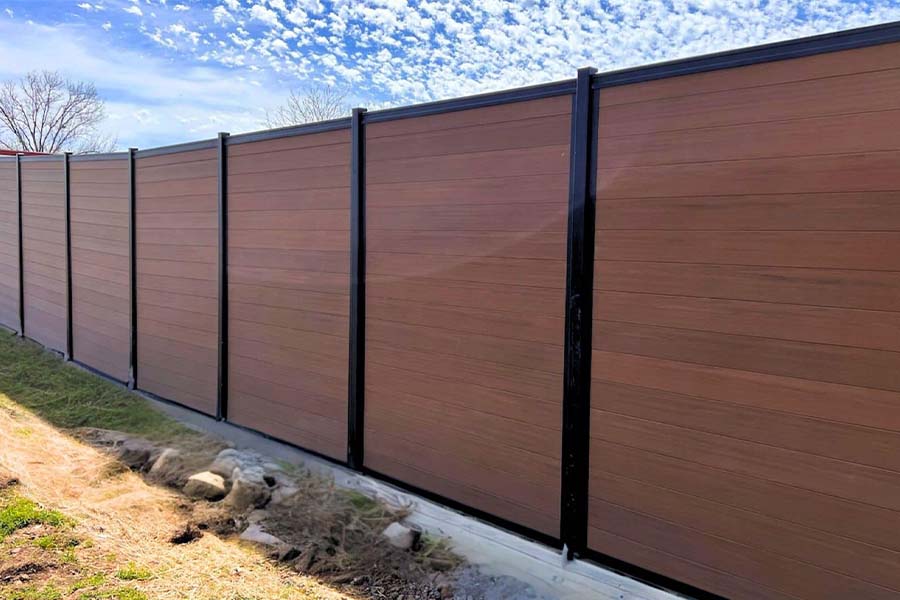All Categories
Featured

When planning to set up a fencing around your residential or commercial property, among the primary steps is understanding the permitting requirements in your location. While the procedure may appear simple, neighborhood laws can vary significantly relying on where you live. Protecting the appropriate licenses prior to starting the installation is critical to prevent potential fines, disputes with next-door neighbors, or perhaps needing to remove your fencing. Below's what you need to know about getting the essential authorizations for your fencing installation.
Why Do You Need a Permit for a Fencing? A permit is commonly required for fencing installations to make certain compliance with neighborhood structure codes, zoning legislations, and security policies. Allowing aids local authorities keep uniformity in neighborhood looks, safety and security, and environmental factors to consider. It also guarantees that the fence does not conflict with utility lines or public areas, which it sticks to elevation and limit constraints.

Common Permits Needed for Fencing Installation. Building Permit. A lot of locations require a building license for fence installation, especially if the fencing exceeds a certain elevation (generally over 6 feet) or is made from non-standard products. This permit makes sure that your fencing follows local building regulations. In some locations, the building division will certainly evaluate the website to ensure that the fence meets security and structural requirements.
Zoning Permit. Zoning authorizations are created to guarantee that your fencing complies with local zoning regulations, including obstacles from property lines, easements, and rights-of-way. Zoning legislations differ from city to city, and sometimes, your fence might require to be held up a specific number of feet from the pathway or road. If your fencing is in a historic area or other particularly marked locations., a zoning license may additionally be needed.

Fence License. In some areas, a particular "fence license" may be needed. When building a fence for property homes, this is commonly required. The city government may define the elevation, product, and style of the fence to guarantee it blends well with the bordering community. Some cities limit chain-link fencings in front lawns or have specific regulations for personal privacy fencings.
HOA Approval. You might need approval before mounting a fencing if your home is component of a home owners association (HOA) HOA guidelines typically include certain guidelines regarding the kind, height, shade, and materials for fencings to keep the neighborhood's appearances. HOA policies can be stricter than city codes, so constantly examine their guidelines prior to relocating onward.
Easement or Energy Authorizations. If your fence will certainly be near or across an easement (such as an energy easement), you may require to acquire approval from the energy company or other entities that manage the land. This is particularly essential if you prepare to mine fence articles, as it ensures you will not harm below ground utilities like water, power, or gas lines.
How to Learn What Allows Are Called for. The very best means to determine which permits are essential for your fence installment is to call your regional building division or municipal workplace. They can give you with details information about demands in your location. Below are a couple of steps you can take to figure out:
Inspect the City or County Internet site: Lots of city governments give info concerning fence installation allows online. Try to find building or zoning areas on their website. Call or Go To City Government Workplaces: If the information is not conveniently offered online, calling or checking out the neighborhood office personally can clarify what's required. Get In Touch With an Expert Contractor: If you're uncertain or overwhelmed by the process, a neighborhood professional or fence setup company can assist in navigating the allowing process, as they know with regional regulations. What Happens If You Do Not Get an Authorization? Stopping working to acquire the needed authorizations can lead to a variety of repercussions. In lots of locations, you might deal with penalties, and your fence could be gotten to be eliminated. In addition, if you market your building in the future, the lack of correct authorizations could be a red flag for buyers and influence the sale. Permitting makes certain that your fencing is certified and assists stay clear of future issues.
Final thought. Before setting up a fence around your property, it's important to examine whether a license is called for in your area. Structure permits, zoning licenses, HOA approval, and utility authorizations might all contribute in your fencing installment procedure. Putting in the time to research and get the essential licenses will not just guarantee that you're following neighborhood regulations, however also aid safeguard your investment and maintain the stability of your residential or commercial property.
Latest Posts
Professional Auto Care for Every Vehicle Type: Your Complete Auto Solution in Montclare
Published Apr 20, 25
2 min read
Floor Covering Professionals That Treat You Like Household
Published Apr 19, 25
1 min read
Dothan Trusts Vision Center South to Enhance Ocular Wellness
Published Apr 19, 25
2 min read
More
Latest Posts
Professional Auto Care for Every Vehicle Type: Your Complete Auto Solution in Montclare
Published Apr 20, 25
2 min read
Floor Covering Professionals That Treat You Like Household
Published Apr 19, 25
1 min read
Dothan Trusts Vision Center South to Enhance Ocular Wellness
Published Apr 19, 25
2 min read